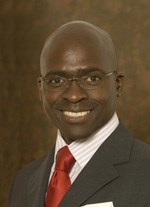
Top stories

Marketing & MediaAds are coming to AI. Does that really have to be such a bad thing?
Ilayaraja Subramanian 3 hours





More news












ESG & Sustainability
Crisis for Deaf South Africans as video relay service provider faces closure




"We have not determined our final application to the regulator. We have prepared a proposal application. We have not decided on a final tariff increase," said Dames, who was speaking at a business community breakfast on energy efficiency.
In June the power parastatal announced that it had initiated its next tariff ignition by submitting its draft Multi-Year Price Determination (MYPD 3) to the South African Local Government Association (Salga) and National Treasury for comment.
The MYPD 3 will set out electricity prices for the period beginning 1 April 2013. This as the second MYPD2 expires at the end of March 2013.
"The end game around tariffs is that electricity tariff increases should get a lot closer to inflation. Half of our current cost structure is coal cost. We cannot apply for an inflationary tariff increase if our coal cost goes up higher than inflation. We are regulated and the coal industry in South Africa is not regulated," Dames said in response to a question on rising electricity tariffs.
In the last three years coal costs have gone up by at least 18% year-on-year.
"We have to recover our costs. We cannot provide you with inflationary increases if the coal goes up higher than inflation because it's half our cost," he added.
Eskom is to spend over R300bn on its power station build programme.
The parastatal currently has debt worth R182bn raised locally and internationally that needs to be paid back, of which the interest bill on that is an average R23bn a year for the next five years.
"We have to pay it back. That would mean that we would need a return on average over the next five years just to cover the interest. We find our expansion not through tariffs but from debt in the market," explained Dames.
The company recently announced a R13.2bn profit for the 2011/2012 financial year.
"We're currently not making enough profit to pay back our annual interest bill. That is the position we're in and that gives you a clear indication that electricity prices are not cost reflective," he said.
Eskom was building additional power stations due to the country's growth.
"This is not an investment in Eskom it's an investment in South Africa, "said Dames.
Of Eskom's expansion programme R75.1bn worth of contracts have been awarded to South African companies. "That represents 62.2% of all contracts we have placed on the expansion programme. That's a clear part of our strategy to create jobs and to make sure we support the economy," said Dames.
Also speaking at the breakfast, Eskom chairperson Zola Tsotsi said that it was important that South Africans embraced energy efficiency as a culture.

Public Enterprises Minister Malusi Gigaba urged businesses to be energy efficient, adding that government was committed to ensuring that the lights stay on.
The minister warned against the wastage of electricity by households, business and government.
"The difficult situation we are now in is a result of our old ways. We were not investing in new generation capacity which is one of the reasons that we have had tariffs set at 25% which have been reduced to 16%," noted the minister.
Even though the South African economy was declining, the build programme must continue.
"The economy is on the decline and is not creating jobs [but] the build programme must continue," said Gigaba.
SAnews.gov.za is a South African government news service, published by the Government Communication and Information System (GCIS). SAnews.gov.za (formerly BuaNews) was established to provide quick and easy access to articles and feature stories aimed at keeping the public informed about the implementation of government mandates.
Go to: http://www.sanews.gov.za